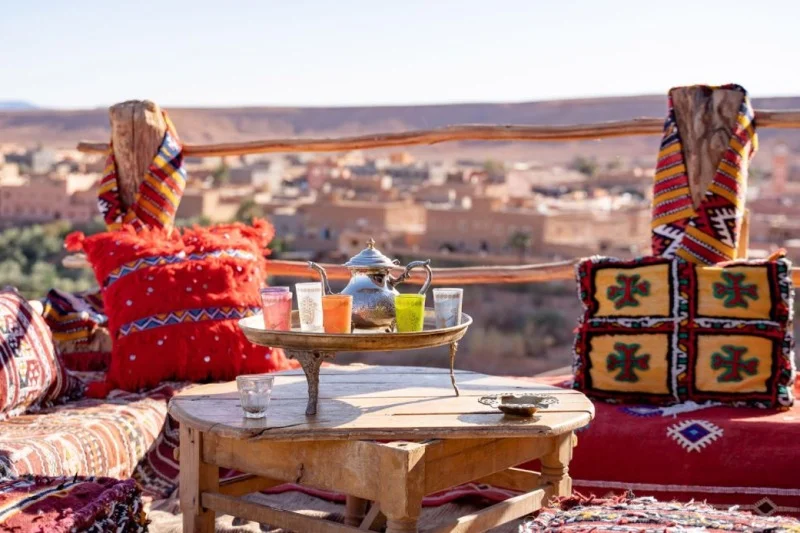The relationship between tourism in Morocco and its cuisine is deeply intertwined, with Moroccan cuisine playing a significant role in attracting visitors to the country. Here are some key points that highlight this relationship:
1. Culinary Tourism
Moroccan cuisine is a major draw for tourists. The country’s rich culinary heritage, influenced by Berber, Arab, Andalusian, and French traditions, offers a unique and diverse food experience. Dishes like tagine, couscous, pastilla, and harira, along with a variety of spices such as saffron, cumin, and cinnamon, are emblematic of Moroccan culture and are highly sought after by food enthusiasts.
2. Cultural Experience
Food is an integral part of the Moroccan cultural experience. For many tourists, sampling local cuisine is a way to engage with the culture and traditions of Morocco. Dining in traditional settings, such as riads (traditional Moroccan houses with interior gardens) or street markets, provides an authentic experience that connects visitors to the local way of life.
3. Cooking Classes and Culinary Tours
Many visitors are interested in learning how to prepare Moroccan dishes. As a result, cooking classes and culinary tours have become popular tourist activities. These experiences often include visits to local markets to buy fresh ingredients, guided cooking sessions, and the opportunity to enjoy the meals they prepare. Such activities not only promote tourism but also help sustain local businesses and preserve culinary traditions.
4. Promotional Strategy
Moroccan cuisine is often used in promotional strategies to attract tourists. Food festivals, culinary events, and the inclusion of Moroccan dishes in international culinary festivals help showcase the country’s food culture. Additionally, media exposure through travel shows, food blogs, and social media influencers further promotes Moroccan cuisine as a unique and essential part of visiting the country.
5. Local Economy and Sustainability
The tourism-cuisine relationship supports the local economy. Restaurants, street vendors, and markets benefit from the influx of tourists eager to taste Moroccan dishes. Moreover, there is an increasing emphasis on sustainable tourism, which includes promoting local food sources, supporting small-scale farmers, and preserving traditional cooking methods.
6. Fusion and Innovation
While traditional Moroccan cuisine is a significant attraction, there is also a growing trend of fusion cuisine in Morocco’s urban centers. This blending of traditional Moroccan flavors with international influences caters to a diverse tourist base and showcases the country’s evolving culinary scene.
Overall, the relationship between tourism and cuisine in Morocco is symbiotic, with each aspect enhancing the other. Cuisine serves as a cultural ambassador, inviting tourists to explore the country’s rich heritage, while tourism supports and sustains the culinary traditions of Morocco.

